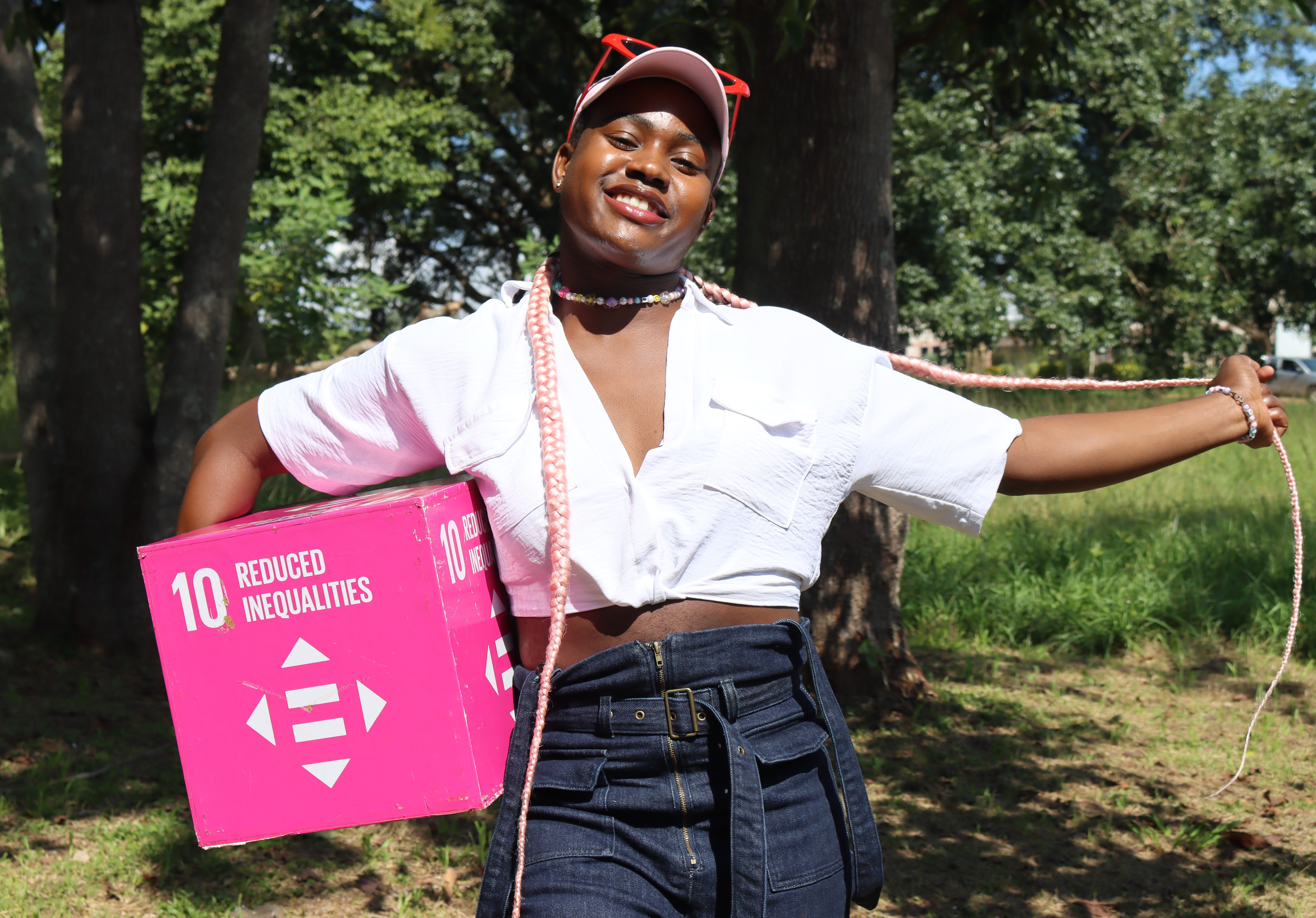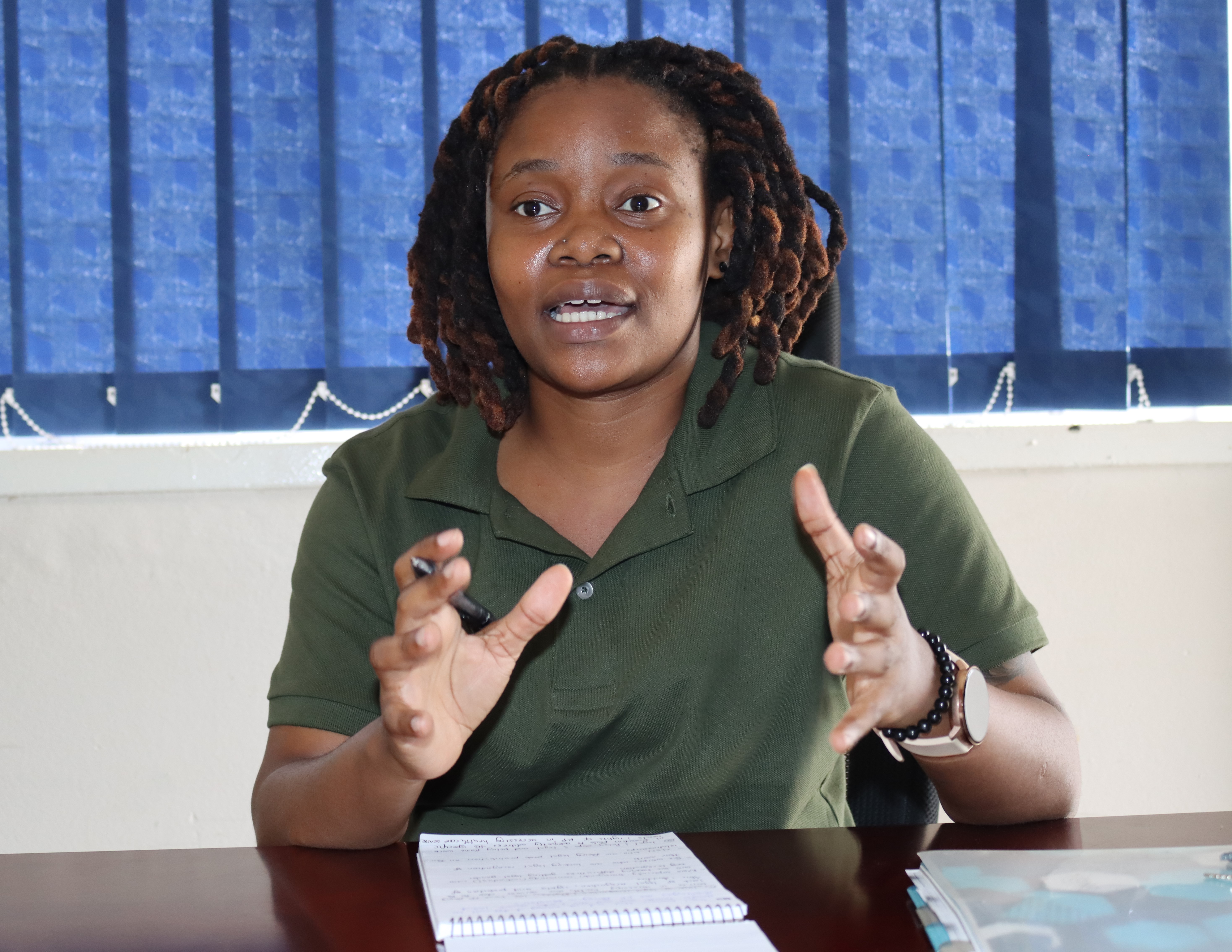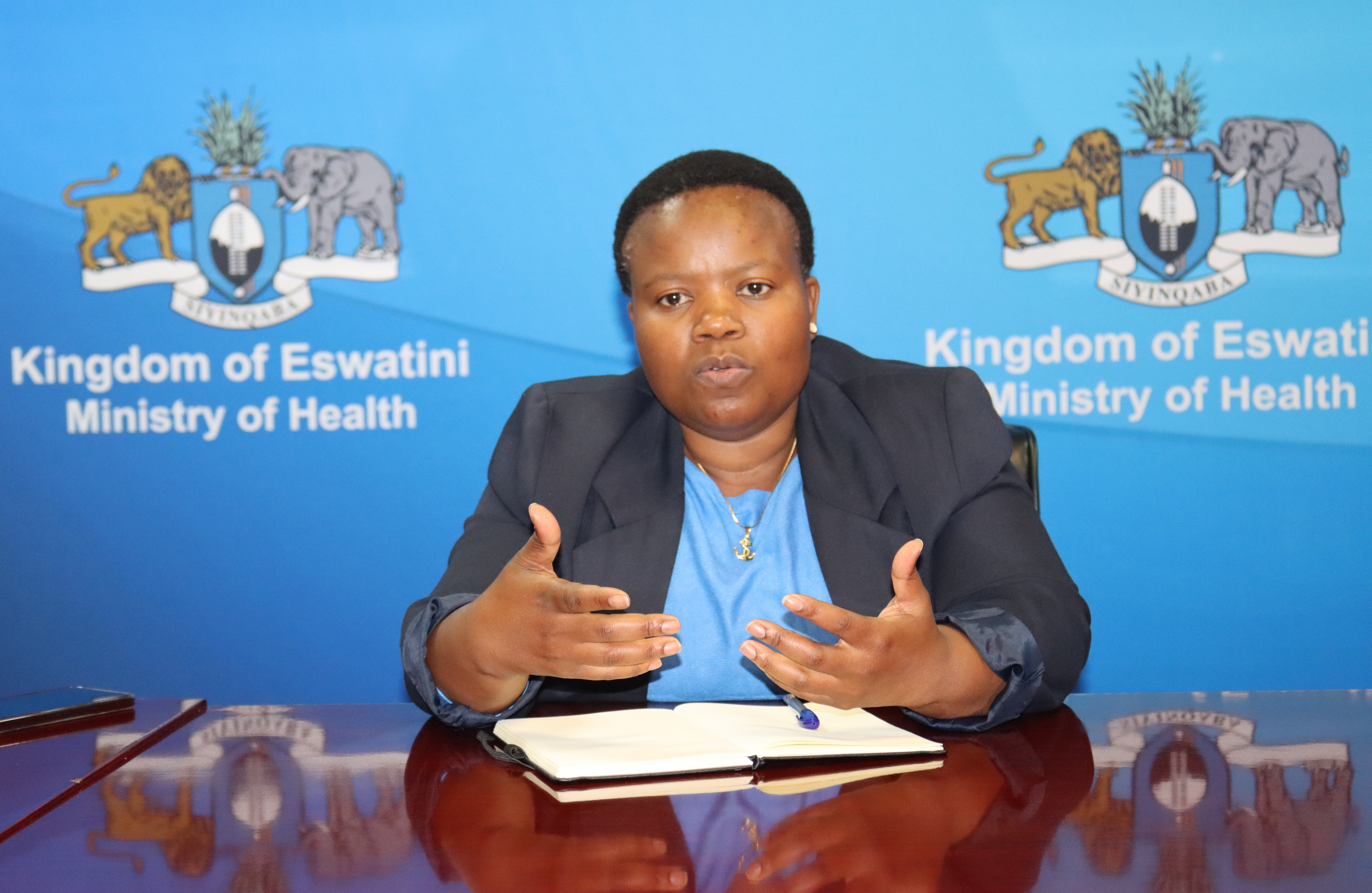Community-led change to improve access to HIV services in Eswatini
May 15, 2024

Princie Hlophe who identifies with the LGBTQI community.
“A group of people approached me as I was walking home from a nightclub with my friends and they beat me up until I was black and blue,” says 28-year-old Princie Hlophe, a transgender woman. She believes the attack, which took place in January, was instigated by her gender identity because her assailants seemed to target her from the group she was travelling with.
Princie identifies with the lesbian, gay, bisexual, transgender, queer and intersex (LGBTQI) community in Eswatini which, according to the NGO, The Rock of Hope, is marginalised despite the National Constitution of 2005 providing for equality before the law irrespective of gender.
Reporting to the Human Rights Council in Eswatini’s Third Universal Periodic Review in 2021, The Rock of Hope stated that the LGBTQI community remains at considerable risk of being violated and limited in accessing justice and healthcare because of the continued existence of the Sodomy Act of 1907. Although this law is rarely enforced, it hangs over the head of the LGBTQI community preventing them from reporting any violations to the police because of fear that they might be arrested or harassed by the officers because of their sexual orientation or gender identity.
“My ID says I’m male, yet I present as a female and I fear that I’d have to explain this to the police who may not be in a position to understand and either send me away or, worse, put me behind bars,” says Princie.

Rock of Hope Acting Director, Bongekile Fakudze.
Many people who are part of the LGBTQI community and other key populations, including sex workers and people who use drugs, often face this predicament when seeking access to justice and health services, says Bongekile Fakudze, the Rock of Hope acting executive director. Fakudze attributes this to the lack of legal recognition of key populations in Eswatini in that even national documents such as the passport and national ID only have a male and female option and do not mention transgender. She says the lack of legal recognition of key populations in the country results in stigma and discrimination which puts them at risk of harassment when dealing with police and health workers.
“For example, men raped by other men report that their crime is not taken seriously because of the stigma and discrimination associated with them,” says Fakudze, adding: “This makes it difficult for them to access healthcare because women health workers dismiss them because they don’t believe in men who have sex with men.”

Eswatini is one of the focus countries included in the two-year SCALE Initiative.
This situation is not unique to Eswatini. According to the Joint United Nations Programme on HIV/AIDS (UNAIDS), no country is on track to meet the 10-10-10 targets by 2025, which is a call for action to remove discriminatory laws and policies to end AIDS by 2030. This is attributed to the legal barriers that key populations face in various countries that make it difficult for them to access HIV and health services. As a result, in 2022 the United Nations Development Programme (UNDP) joined hands with partners to implement the SCALE Initiative: Removing Barriers to HIV Services to drive progress on the 10-10-10 targets by working with people living with HIV and other key populations to strengthen and scale their work countering punitive and discriminatory laws and HIV-related criminalization.
Eswatini is one of the focus countries included in the two-year SCALE Initiative from 2022 to 2024. The Initiative has awarded The Rock of Hope and HealthPlus 4 Men, an NGO supporting key populations with psychosocial support and Anti-Retroviral Therapy (ART), a grant of USD35,000 each.
The Rock of Hope established paralegal services to support people like Princie to access justice whenever they encounter any form of abuse, using the SCALE Initiative grant. The paralegals are trained community members who offer information and support to key populations who are violated or facing abuse. Princie benefited from these services.
In addition, The Rock of Hope facilitated the training of police officers to enhance their understanding of key populations’ issues, so that they may be in a better position to handle their cases.
“A paralegal officer accompanied me to the police to open a case and before proceeding to the hospital to get treatment. I couldn’t do it on my own because of the fear of having to explain my sexual orientation to the police. I was happy to be met by professional police who were only interested in how best they could support me to get justice,” says Princie.
Using the SCALE Initiative grant, HealthPlus 4 Men established support groups in the four regions to help key populations get psychosocial support and easily access ART. According to HealthPlus 4 Men executive director, Sibusiso Lulu Maziya, key populations are often expelled from home and find themselves lonely, abused, and unable to get jobs which leads to depression. This, he says, often leads to anger and depression.
“The SCALE Initiative has enabled us to establish support groups so that they can come together and share experiences while we also provide them with counselling services,” says Maziya. While these support groups are meant to address mental health issues, they are also a space where they discuss income-generation ideas.
Maziya says implementing the SCALE initiative has enhanced the work done by HealthPlus 4 Men through the support of Eswatini National AIDS Programme (SNAP) under the Ministry of Health. He says this is the only Ministry that focuses on key populations which is a good entry point.

Key Populations Programme Officer at the Eswatini National AIDS Programme, Khanyisile Nyembe.
Key Populations Programme Officer at SNAP, Khanyisile Nyembe, concurs with Maziya adding that the SCALE Initiative has made it easier for the Ministry of health to bring on board other ministries. For example, the initiative facilitated the training of prosecutors and police on key populations and gender-based violence issues, and numerous engagements with all stakeholders making it easy for the Ministry of Health to table the issues within the government system.
“Although the Ministry of Health has taken a neutral position in providing health services for all, we discovered that there are structural barriers that need to be addressed by other government departments,” says Nyembe. For example, she says, police used to arrest female sex workers because they found them with many condoms. However, the Ministry was able to sensitise the police that if condoms are used as evidence in court, female sex workers will stop using them which increases their risk of HIV and reverses the country’s progress towards eradicating HIV and AIDS. Condoms are no longer used as evidence, she says.
Although she acknowledges the progress made with the support of the SCALE Initiative, she says there is a need for a tool to track how far cases reported to police go within the justice system. She says this tool can help to ensure that people like Princie do not only report their cases but that their cases are finalised in court to send a strong message about violating key populations.

 Locations
Locations